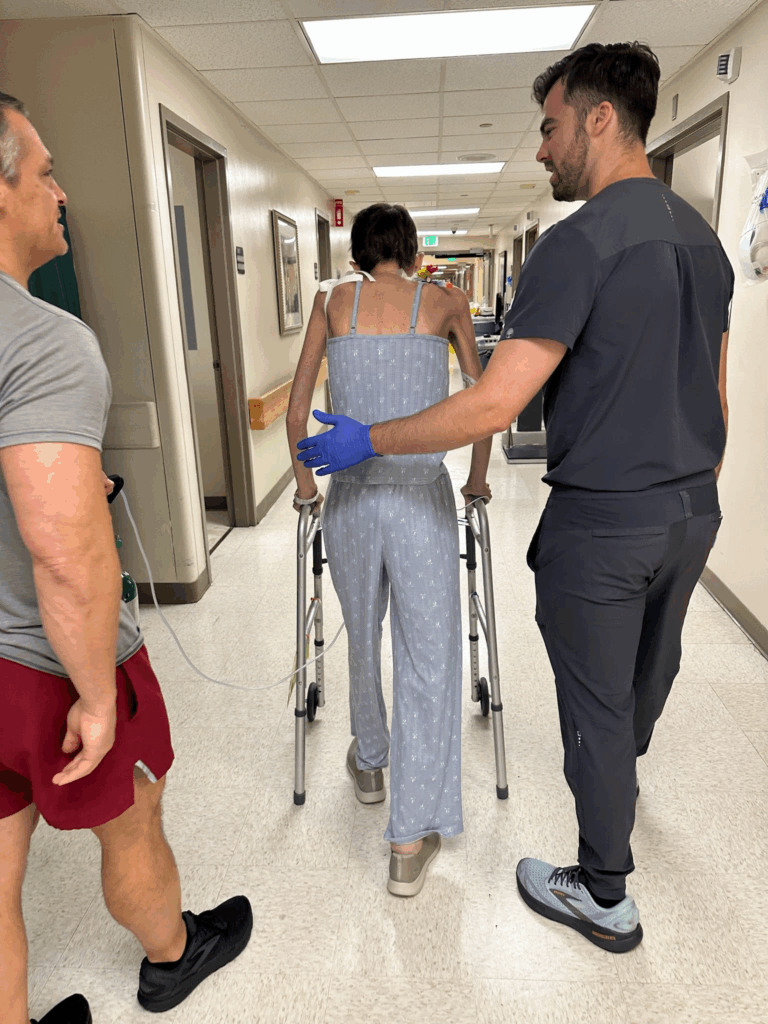When a local farmer invested $6,500 in a young Black Angus bull, he believed it would be one of the best decisions for his farm. Strong, healthy, and full of potential, the animal seemed like a solid addition to his livestock. But within weeks, excitement turned to concern. The bull wasn’t living up to expectations, and the farmer began to wonder if his expensive purchase had been a costly mistake.
Despite appearing perfectly healthy, the bull showed little energy and seemed uninterested in the role it was bought for. This puzzled the farmer, who had counted on the animal’s performance. With doubts growing, he finally decided to seek professional advice and called in a veterinarian to examine the bull.
After a careful check-up, the vet assured him that nothing was physically wrong—the bull was simply young and not yet fully developed. Instead of suggesting drastic measures, the vet offered an unusual but harmless solution: peppermint-flavored pills. Though skeptical, the farmer followed the instructions and gave the treatment a chance.
Within days, the change was remarkable. The once sluggish bull became energetic and active, surprising the farmer with his sudden enthusiasm. Not only did he fulfill his duties on the home farm, but he also began helping neighboring farms as well. Amused by the turnaround, the farmer joked, “He’s like a machine now! I don’t know what was in those pills, but they sure tasted like peppermint.” What started as a worry over wasted money turned into a story that spread through the community—one that farmers still laugh about today.
Avery’s Fight with Faith: A Journey of Strength and Hope
Avery White is 20 years old, a young woman who, despite her frail body, has shown a strength beyond her years. Weighing just 77 pounds, Avery has faced challenges that would break most of us. Diagnosed at 15 with gastroparesis after years of unexplained pain, weight loss, and constant vomiting, her journey took a devastating turn two years later when she was diagnosed with lupus and other autoimmune diseases.
Over the years, Avery’s body has waged a relentless battle against her own immune system, but her spirit remains unbroken. Her aunt, Paige Smith, shared Avery’s heartbreaking story of strength and perseverance: “Avery’s condition worsened rapidly,” Paige wrote. “At 17, she was diagnosed with lupus, Raynaud’s disease, and antiphospholipid syndrome, and it quickly progressed to catastrophic APS. Despite multiple hospital stays, and several more surgeries, Avery fought on.”
Despite all her suffering, Avery held on to hope, even as her health continued to deteriorate. She had to leave college and her beloved job at Restoration coffee shop in Wetumpka. She no longer had the strength to carry on daily tasks, and by January of this year, chemotherapy became her only option. Throughout her struggle, Avery’s family had something joyful to look forward to. Last Christmas, they surprised her with tickets to Rock the South, a music festival.

But just hours before the event, Avery’s health took another turn for the worse. Chest pain, difficulty breathing, and a series of tests led to the discovery of an enlarged heart, fluid in her lungs, a leaky mitral valve, and irregular heart rhythms. After being rushed to the hospital, Avery would face 57 days in and out of intensive care, enduring multiple surgeries and treatments.

Avery’s journey has been filled with unthinkable challenges—three mini-strokes, bleeding in her lungs, brain inflammation, and ongoing battles with lupus nephritis and organ failure. Yet through every trial, Avery has remained a beacon of hope. Her faith has never wavered. She faces every obstacle with grace, strength, and a smile that lights up every room. Even in the most difficult moments, she finds strength through her faith, believing that God is by her side, guiding her through the darkest storms.

Today, Avery is about to undergo open-heart surgery to replace her mitral valve, a necessary step to help manage the fluid buildup in her lungs and protect her life. As she faces this surgery, her family continues to pray for her—praying for skilled hands, a successful surgery, and a speedy recovery. Avery’s courage and her unshakable belief in the strength of her faith are a testament to her unwavering spirit.

“Avery’s journey is a living testimony that no matter how fierce the storm, God is with her, and she will not be moved,” Paige wrote. “She knows that her help comes from the Lord, who made heaven and earth.” Through all the pain, through all the uncertainty, Avery remains a symbol of strength. Her hope, her faith, and her ability to find joy in the smallest moments continue to inspire everyone around her. Please keep Avery, her family, and her “dinosaur T” in your prayers as she faces this next challenge. Let’s lift her up in faith and love as she continues her courageous fight.
6 foods that silently drain calcium from the body, the more you eat, the weaker your bones become

Calcium is not only a mineral that keeps your bones healthy, but also helps your heart beating, your muscles working and your nerves firing.
The Cleveland Clinic states that calcium is the most abundant mineral in your body, with more than 99% of it residing in your bones and teeth to give them strength and structure. The remaining 1% — which does a lot of good despite the low percentage — is in your muscles and tissues and circulating through your blood.
Since your body is not capable of producing calcium itself, you take it in through what you eat and drink or from supplements.
However, while there are foods rich in this mineral, there are also types of food that drain calcium from your body. The more you eat them, the weaker your bones become.
1. Soda (Soft Drinks)

Most sodas, especially colas, contain phosphoric acid, which can block calcium absorption and cause your body to lose calcium from bone tissue. The extra sugar adds to the problem by increasing inflammation that wears down bone strength over time.
In short, consuming sodas regularly can reduce bone strength and increase the risk of fractures, so make sure you substitute these beverages with healthier options such as herbal tea, perhaps.
2. Salt (Sodium)

The more sodium you consume, the more calcium is excreted from your body through the urine, leading to weaker bones.
Foods that contain sodium in large amounts are fast foods, processed snacks, and packaged meals. Cut down on added salt and make a habit of checking nutrition labels for their sodium levels.
3. Caffeine (Coffee, Tea, Energy Drinks)

When you consume caffeine, your body tends to lose calcium through urine. Drinking coffee, tea, or energy drinks in excess on a regular basis can slowly weaken your bones, increasing the risk of fractures over time.
Having 1–2 cups of coffee daily is considered safe, but anything above that amount daily can impact calcium stores.
4. Alcohol

Heavy drinking can hinder your body’s ability to absorb calcium and slow down osteoblasts, the cells that build bone. It also lowers vitamin D levels, which are necessary for calcium absorption.
At the same time, consuming too much alcohol — more than 1 drink daily for women, 2 for men — increases the chances of osteoporosis.
5. Red Meat and Processed Meats

Processed red meats like sausages, bacon, and hot dogs are rich in phosphorus. If your calcium intake is insufficient, this imbalance can interfere with bone health and increase the risk of weakening bones over time.
So, have red meat in moderation, and mix in healthier proteins such as fish, chicken, or plant-based foods in order to give your bones the support they need.
6. Spinach and Rhubarb (High in Oxalates)

Oxalates in spinach and rhubarb can interfere with calcium absorption, meaning your body may not use all the calcium these foods contain. Combining them with low-oxalate, calcium-rich vegetables such as kale and broccoli, can help keep your bones strong.
Please SHARE this article with your family and friends on Facebook.













